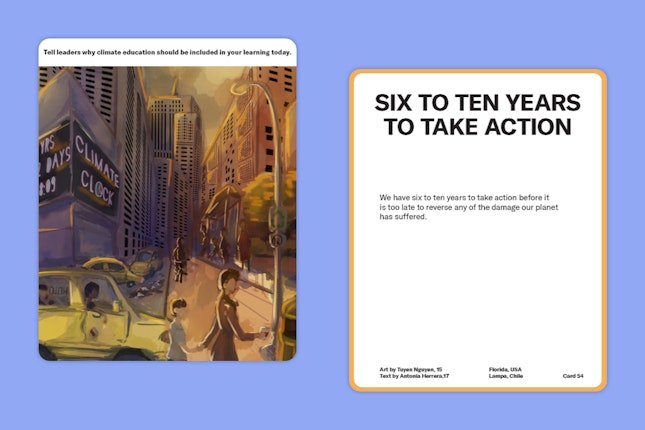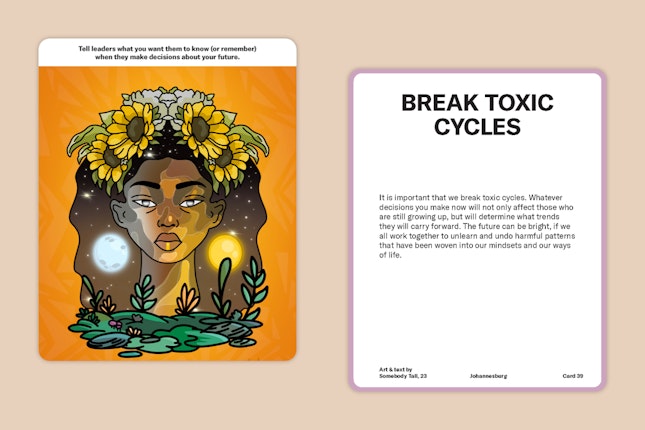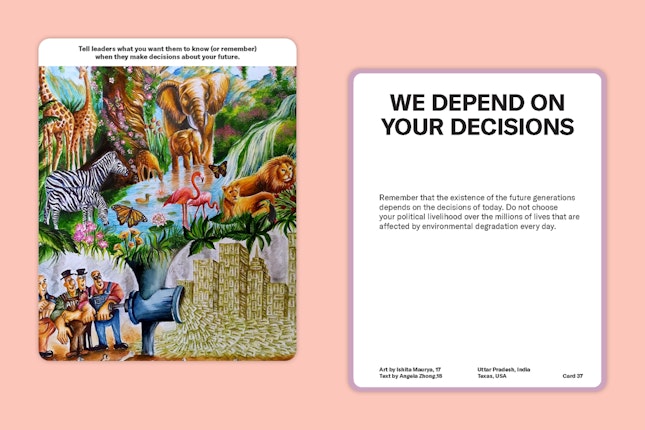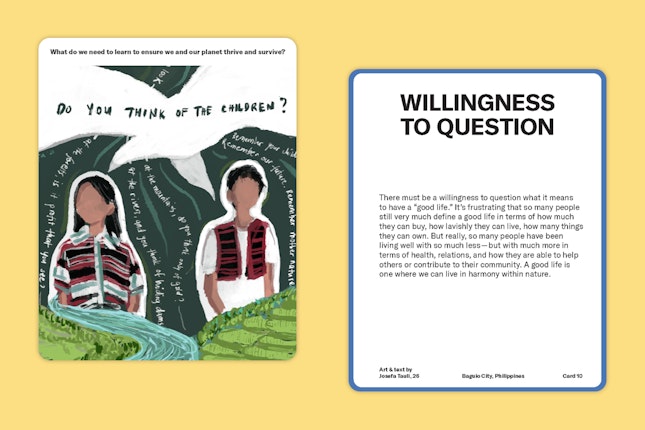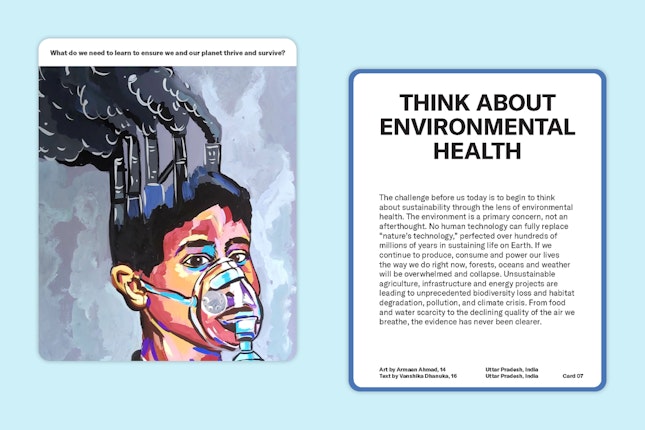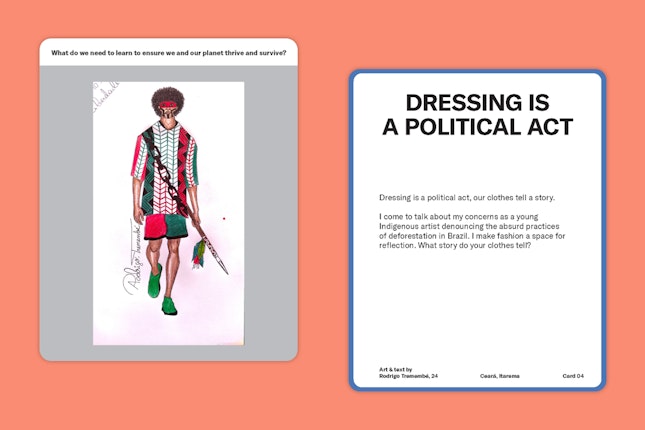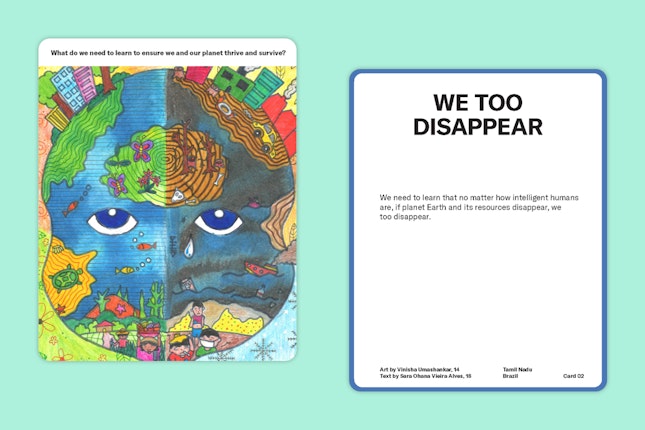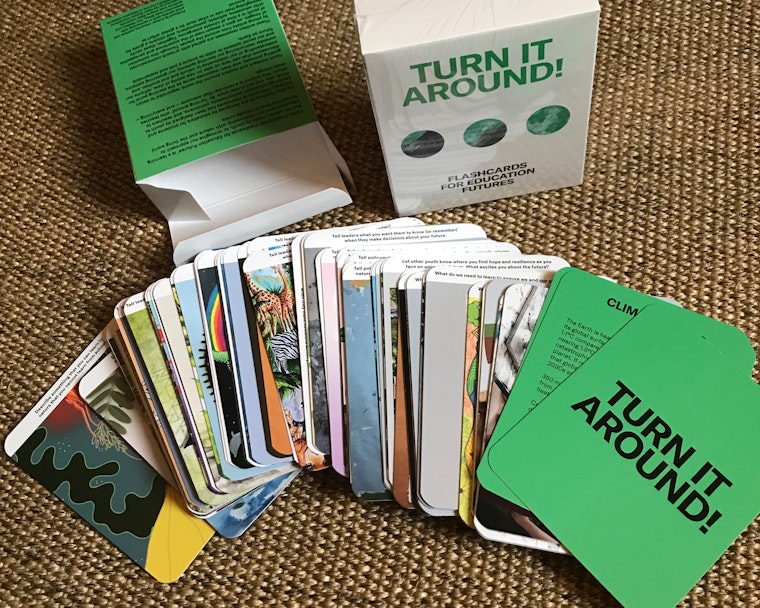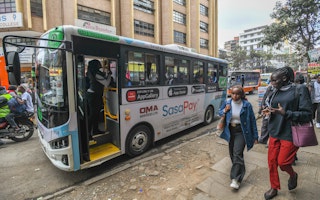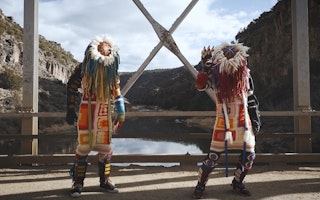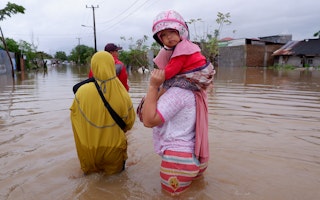These Flashcards Will Change the Way You Think About the Climate Crisis
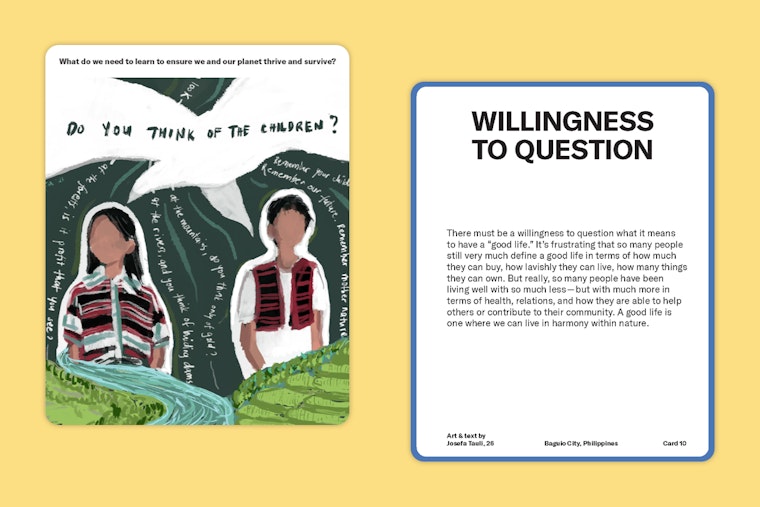
An illustration of two children, in traditional Filipino clothing, adorns the flashcard. They are standing side-by-side, amid greenery and a flowing river. Next to them, are the words: “You look at the forests. Is it profit that you see? You look at the mountains. Do you think only of gold? Remember your children. Remember our future.”
The words and images, produced by Josefa Tauli, are part of the Turn It Around! project, a flashcard deck that amplifies youth voices—particularly those from the Global South—in the conversation about the climate crisis.
The project is an effort to ensure that those who stand to be most affected by the dramatic climate changes now underway have a creative vehicle for making their voices heard. “It seems ironic that the future of education is decided without the people who actually will be living those very futures,” says Iveta Silova, professor and associate dean of Global Engagement at Arizona State University and a lead researcher with the project.
The Turn It Around! project helps to shift education norms by reversing the power dynamic between adults and youth, using flashcards as a tool to educate decision makers about environmental issues.
The deck of 70 cards, featuring illustrations and words from youth around the world, explore common themes, such as capitalism, co-existence with other species, and fears about the future.
According to Silova, discussions around the United Nations’ Sustainable Development Goal of achieving inclusive and equitable quality education (Goal 4) is often too narrowly drawn to focus on test scores, literacy, and numeracy—to the detriment of other dimensions of education.
“Does it really matter how literate and numerate we are when we all may vanish on this planet because we are not climate literate?” she asks.
Young people, who in recent years have been on the front lines of global protests demanding urgent action on climate, are using the cards to champion the importance of including environmental issues in curricula.
The flashcards were presented at the inaugural gathering of ministers of education and environment at COP26, the 2021 United Nations Climate Change Conference, where leaders pledged to incorporate sustainable development and climate change into educational programming. According to UNESCO, only half of the world’s national education curricula makes reference to climate change.
“Everything must change. The way we think about education, the way we engage in education—everything fundamentally must change,” Silova says, making a case for prioritizing climate and ecological literacy.
According to one study, simply having conversations at the household level about climate change—even when parents are apathetic about the issue—can have a positive impact on children’s climate behavior. Studies consistently show that climate education is linked to increased concern and changes in habits that can mitigate climate change. Climate literate populations are more likely to put pressure on their governments to address these issues.
The flashcards, available in English, Spanish, and French, will be mailed to global leaders, along with a policy report on climate change education, written by youth.
“We hope the flashcards create a moment for the policymakers to pause and reflect on the future in a longer-term perspective that involves more than just their short-term political interests,” Silova says.
The flashcards, mostly created by youth under 25 from 44 countries around the world, will also be used for civic engagement in communities, schools, and workplaces, acting as a starting point for difficult conversations. While climate change is portrayed as a divisive issue, Silova says, people typically find common ground when discussing the issue beyond the realm of partisan politics.
The project has enjoyed a high level of engagement from groups ranging from decision-makers to grassroots activists, and Silova says the project will continue to receive art submissions from youth. The cards are currently being translated into Chinese, and the team hopes to share them at COP27, in Sharm El-Sheikh, Egypt, in the fall of 2022.
“It’s almost like this project took a life of its own, shifting and turning in new and unexpected directions,” Silova says. “We’re just going along with it.”
Turn It Around! is a collaboration by Arizona State University, the Artists’ Literacies Institute, UNESCO’s Futures of Education initiative, and the Open Society Foundations. The Artists’ Literacies Institute is a grantee of the Open Society Foundations.
